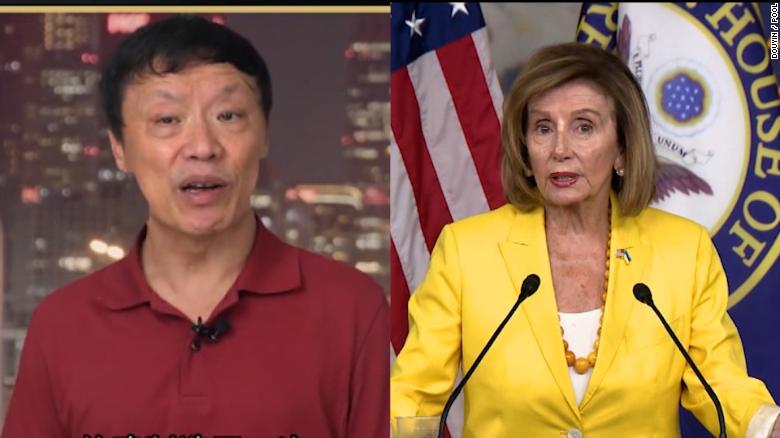Pentagon working to develop security plan for Pelosi ahead of possible trip to Taiwan

The plan, which is being developed by John Aquilino, the head of the US Indo-Pacific Command, which oversees US military operations across the region, would likely require approval by Defense Secretary Lloyd Austin. It would also likely be briefed, at least in broad strokes, to President Joe Biden, several US officials say.”As you would expect, any time a senior official travels to the region, we are planning how to make sure that official is safe and secure,” a senior Defense official told CNN. Sources familiar with Pelosi’s plans sayThe trip, however, has raised concerns within the Biden administration, with national security officials quietly working to convince Pelosi of the risks a visit could pose during a highly sensitive moment between Taiwan and China.The Pentagon, and in particular the Navy, already keeps a substantial force in the region. Key assets such as the aircraft carrier USS Ronald Reagan, with its fighter and reconnaissance aircraft on board, could be moved closer to Taiwan by heading into position in the South China Sea. The Air Force could also be used for additional capability to monitor airspace and conduct reconnaissance. Other assets could be positioned at further distances, ready to move if contingencies arise. “There are always layers of force protection,” a second Defense official said of this type of planning.If needed, the Pentagon could also move reconnaissance satellites over the region to get a continuous flow of intelligence on Chinese military movements, officials say.Concern about possible miscalculationsBut the constant worry among US officials is that miscalculations or inadvertent incidents or accidents could occur if China and the US significantly increase their air and maritime operations in the region.Though the Pentagon won’t publicly acknowledge the military plan, “you should expect the department to look at what assets are available in the area,” the second official said. “It wouldn’t be appropriate to comment on any congressional travel possibilities, ” said Lt. Col. Martin Meiners, a DOD spokesman.The US does not expect direct hostile action from Beijing during a potential visit by Pelosi. At least five Defense officials described this as a very remote possibility and said the Pentagon wants to see the public rhetoric lowered. The sense is the US will have a better understanding of China’s view after President Joe Biden talks with President Xi Jinping in a call scheduled for Thursday.Officials say, however, that they are ready for China to continue to conduct potentially aggressive air or at-sea interactions with the US or allies in the region. Chairman of the Joint Chiefs of Staff Mark Milley has assembled a classified summary of Chinese intercepts over the last five years against US and allied aircraft. But a key DOD policy official has gone a step further, highlighting the most near term concerns. “I want to be clear that these are not isolated incidents; that over the last five years the number of unsafe PLA intercepts, including US allies and partners operating lawfully in international airspace in the South China Sea, has increased dramatically, with dozens of dangerous events in the first half of this year alone,” Ely Ratner, who serves as the assistant secretary of defense for Indo-Pacific Security Affairs, said in a speech this week.Risks for PelosiAustin acknowledged to reporters Wednesday that he has spoken to Pelosi, adding that he remains “concerned … about the aggressiveness of the PRC and the kinds of things that we’ve been seeing in the region lately.” “And so I think we have to be vigilant, you know, throughout, even as we’re operating in that region. But in terms of what specific security requirements that we would be called upon to provide in support of Speaker Pelosi, I won’t comment on that,” he said. Pentagon officials briefed the speaker last week about Taiwan and the heightened tensions in the region, according to people familiar with the matter. White House officials were also present for the briefing.Because Pelosi is in the presidential line of succession, the administration takes extra care for her security when she travels overseas, the White House said Tuesday.The President let slip last week that the US military was opposed to Pelosi visiting Taiwan now, but the White House has refused to expand on his comments. Pelosi said during a news conference last week that she wasn’t sure precisely what Biden meant.”I think what the President was saying is that maybe the military was afraid of my plane of getting shot down or something like that. I don’t know exactly,” she said.CNN’s Kevin Liptak and Kaitlan Collins contributed to this report.





